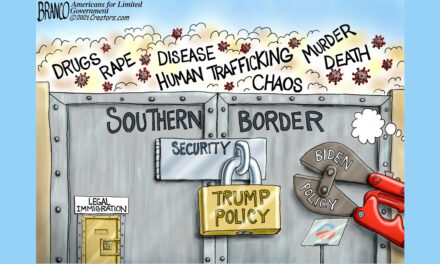
Both Parties Conveniently Ignore Deficit
If there’s one thing Republicans and Democrats have in common, it’s the ability to simultaneously complain about and ignore the deficit.
The annual budget deficit is about $600 billion. According to the Committee for a Responsible Budget (CRFB), the GOP’s tax overhaul will increase the deficit to $1 trillion by 2019.
At this rate, the accumulated national debt will be equal to 98% of the nation’s annual GDP within the next ten years. With expected health changes, the debt could reach 99% or even 100% of GDP. According to the Joint Committee on Taxation, the tax package cuts government revenues by $135 billion in 2018. The bill will also drive up interest rates on the $15 trillion federal debt.
Democrats were quick to express shock at the expected debt increases, despite having ignored the same concerns during Obama’s presidency, when the national debt rose from $12 trillion to $19 trillion.
Republicans, who complained about the national debt during Obama’s presidency, insist the tax package will boost the economy enough to make up for the tax cuts.
“When we had trillion-dollar deficits the last time, it was the result of one of the worst economic downturns we’ve seen in history,” argues CRFB President Maya MacGuineas. “This will be completely self-inflicted.”
President Trump has essentially shrugged off concerns about the deficit, pointing to the trillions of dollars in overseas assets corporations will soon be bringing back into the US. “This is money that’s been stuck there for years, and it’s going to come pouring back into the country.”
Democrats also worry Republicans will cite rising deficits as a reason to cut government spending on entitlement programs like Social Security and Medicare.
House Speaker Paul Ryan has stated that entitlement reform will be a priority for the 2018 agenda, but such an effort is unlikely to occur during an election year.
Senate Majority Leader Mitch McConnell (R-KY) has already said it won’t happen unless Democrats are on board, and the Dems are unlikely to be interested in cutting two of their most cherished programs to help pay for a GOP tax cut. It is also unlikely that Republicans will risk going after Social Security and Medicare during an election year in which control of both chambers hangs in the balance.
“More likely, the net effect of the new tax bill will be to establish that both parties have settled upon what they consider solid reasons to ignore the deficit,” writes The Wall Street Journal’s Gerald Seib.
While Democrats readily acknowledge the need to introduce new taxes to pay for new programs, they are less likely to admit that entitlement programs are driving long-term deficits. Republicans, on the other hand, are more than willing to acknowledge the need to rein in entitlement programs. But they don’t apply the same standard when it comes to tax cuts.
Some cuts to entitlement programs could happen automatically.
Based on federal law, cuts to programs like Medicare are automatically triggered when Congress passes a law increasing the deficit. For weeks, Democrats have argued the GOP tax plan will trigger cuts to Medicare totaling $25 billion.
Republican leaders are considering passing a separate law which would waive the automatic cuts.
—
Congress approved a short-term funding bill earlier this month to avoid a shutdown, but it has yet to agree on a long-term plan.
The Treasury Department has a cap on how much it can borrow to cover the deficit that occurs when the government spends more than it earns in taxes. Washington has been bumping up against that limit in recent years, and only Congress has the ability to raise it.
Congress is currently considering allocating $81 billion in disaster aid to address damages from wildfires in California and from hurricanes Harvey, Irma, and Maria. If passed, it will be added to the 2018 deficit. The final deficit figure will be announced in October, just a few weeks before midterm elections.
Editor’s note: The new tax plan will stimulate the economy but it will be difficult to make up for the increased deficit. But it is better than the Obama plan of increasing spending which had no stimulative effects. Either way, the deficit will need to be addressed or we are toast.


























If ya'll say so, E.D., then it must be so. MSNBC vs PBP challenge and compare. Scandals, they pop up…
Whoops, I meant Robert.
I was referring to Roger being mentally unhinged. He's the one that was ranting. Hell, I support Trump. I don't…
Your daughter
I noted in another post that if I were king of the forest....... I would pardon all the non-violent 1/6…